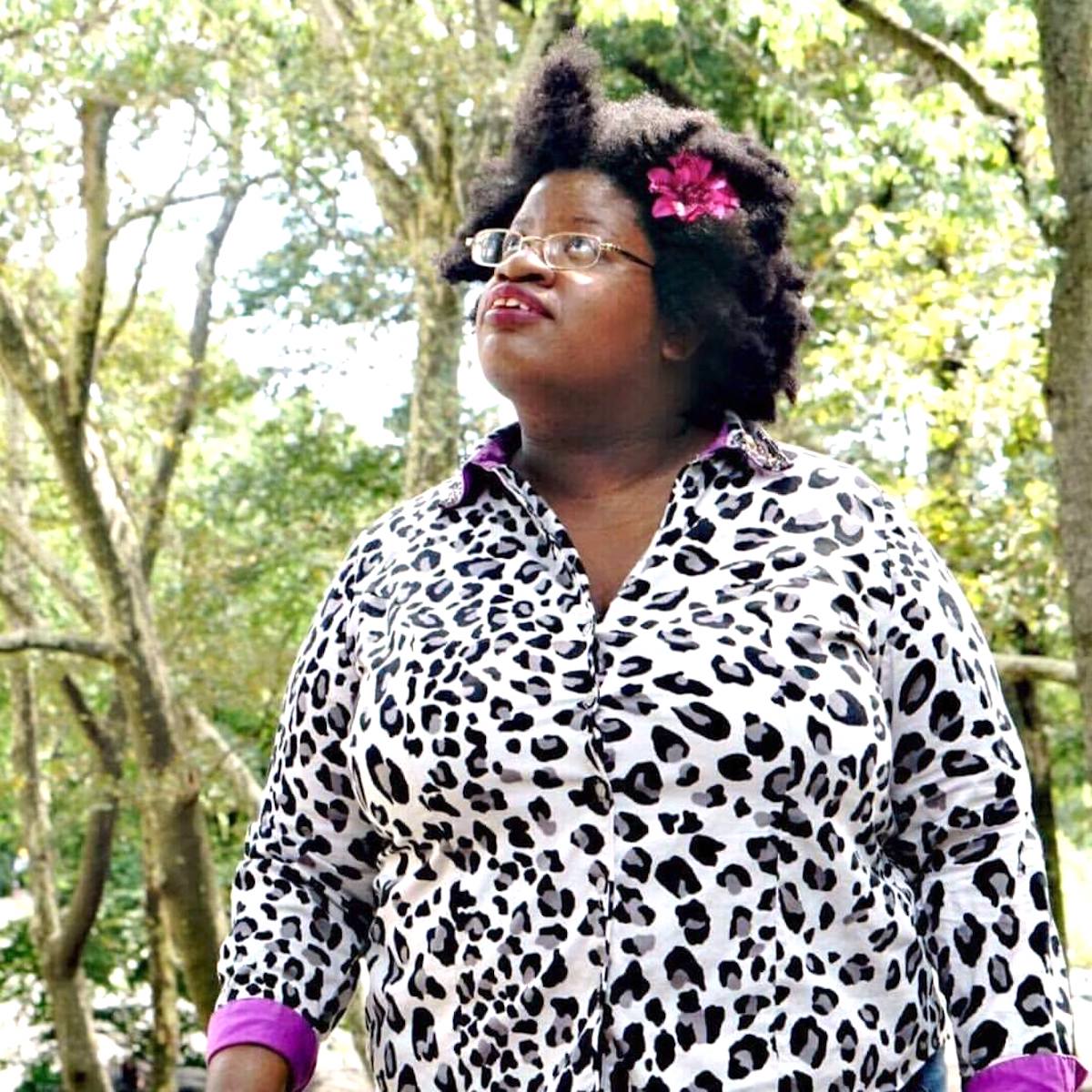By Denarii Grace
I’ve been out as bisexual for over a decade now, but it took me 31 years to come out as non-binary/agender. While I readily acknowledge that this isn’t the case for everyone, for me, sexual and romantic orientation feel a lot easier — make a lot more sense — than gender identity. Perhaps it’s becasue of my specific journey.
I’ve been aware of my same/similar gender attractions (and, perhaps most importantly, their co-existence with my different/dissimilar gender attractions) since elementary school, since before I got my period, since . . . well, a really long time. Identifying outside of the conventional binary of gender, on the other hand, is a relatively new phenomenon for me.
The night before writing this, I read an article shared by a friend (also non-binary) about a 10-year-old who just came out as non-binary and uses they/them pronouns. The child is white and thin, fitting into the few media conceptions of what it means to be non-binary — completely removed from my experiences as lifelong fat Black person — but I read it with such fascination, awe, longing, and also some doubt.
As an older millennial, born in 1987, I often wonder what it would have been like to have come of age in a society that, while certainly unbelievably far from perfect, is much more accepting and understanding of queerness and, to a lesser extent, transness than it was when I was growing up. I wondered what it would have been like to not have to wait until 31 to come out as “not this, but not quite that either.”
And, of course, because imposter syndrome lurks behind these non-binary identities regularly, I also wondered if I would have been as aware as that ten-year-old. If non-binary, agender, and genderfluid identities were as mainstream in the ’90s as they are now, would I have known?
Perhaps, even more so than sexual and romantic identity, the narrative of trans experience is that people “know” who they are at very young ages, at around the toddler stage. Recent studies around these issues, for many trans youth (and the adults who were once closeted trans youth), are a godsend that validate what they’d always known deep down in their hearts.
But what if I didn’t know? What if I wasn’t who I think I am? Can that change? Am I allowed to change? Was I cis at 12, curious/questioning at 21, and (mostly) certain now? What does it all mean? It’s been a little more than a year since I came out and I’m still trying to sort it all out. And I’m not all that certain that I ever will.
In a few years before I came out as non-binary/agender, my life was just a series of internalized interrogating questions. As I relayed my Medium essay (link below), there was a lot of questioning of the concept of gender itself, wondering how I knew who I was and where I fit in. Unlike my sexual and romantic orientation, where I knew deep down inside that I was attracted to multiple genders at a young age (thought it was just assumed that I was straight — because that’s all that’s supposed to exist), I grew up being referred to as a girl, by adults and children alike, so I just took their word for it. This is what a “girl” is, you fit the criteria, ergo you’re a girl. And that was that.
I was a girl; it was all I knew. Until I was no longer sure, because cultural shifts have allowed for more (and more in-depth) conversations in the public sphere about trans experience, gender, and non-binary identities, and colonization and white supremacy’s roles in destroying the fullness of (a)gender that existed in indigenous communities around the world for centuries.
I was given the freedom to look back over my life and reevaluate what experiences did (and did not) speak to me, what felt accurate and true.
And sometimes truth is messy. And sometimes we don’t want to face the truth. I mean, c’mon. I’m already Black, bisexual, (proudly) fat, poor, multiply disabled, femme, witchy in a Christian-centric society, and brown-skinned. Do I really need yet another marginalized, oppressed identity on my crippled back?
But I realized that, after being out as bi for a decade, I literally couldn’t do anything but seek freedom. I wanted to be free to be me, fully. When I came out publicly as bi, in October 2007, I’d come out to myself an entire 18 months prior. When I came out publicly as non-binary/agender/exogender last spring, I’d only (finally) come out to myself about a month before.
Liberation begets liberation. That’s the agenda.
*drops mic*
Denarii Grace is a Black, bisexual, non-binary, proudly fat, multiply disabled, poor, femme, witchy woman. They’re a blues singer-songwriter poet, freelance writer and nonfiction editor at The Deaf Poets Society, screenwriter, and public speaker/educator/activist. They coined the term “exogender”, a term for use by Black people only, to describe their (a)gender experience and founded Fat Acceptance Month in January 2019.
You can find more of Denarii’s writing here:
https://medium.com/@writersdelite/the-long-road-to-non-binary-d3bb86ace5b

